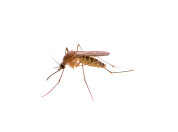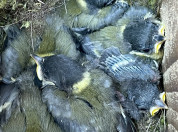Search
Filter by
Type
Tags
Dossiers
Themes
Departments
Active filters
1049 search results
Search results
-
Exploring Soil Biodiversity and ecosystem services through molecular and AI machine learning
An intern position for the EU Soil Missions Horizon 2020 project, "Integrating Soil Biodiversity into Ecosystem Services (SOB4ES). This internship will assist in generating primary data in the form of community compositions of mites and springtails with molecular approaches, AI machine learning and setting up eco-acoustic recording sample library. -
PhD thesis defence Muhammad-Syamsu Rizaludin: Underground alarms
Muhammad-Syamsu Rizaludin will defend his PhD thesis, titled "Underground alarms: volatile-mediated recruitment of beneficial soil bacteria by plants under biotic stress".
-
PhD thesis defence Zhaoqi Bin: Application of trait-based plant-soil feedback for agroecosystem optimization
Zhaoqi Bin will defend her PhD thesis, titled "Application of trait-based plant-soil feedback for agroecosystem optimization".
-
Hbo/MSc student project: microbial N2O emission and CH4 oxidation in agricultural soil
Upland soils play an important role in climate regulation by acting as both sinks and sources of greenhouse gases (GHGs), such as nitrous oxide (N₂O) and methane (CH₄). Compared with natural upland ecosystems, agricultural soils often exhibit higher “leakiness” owing to intensive management practices such as high nitrogen inputs and frequent soil disturbances. These practices can reduce the CH₄ sink capacity while enhancing N₂O emissions. In a previous chapter of our work, we use extensive observational data to identify pathways through which agricultural practices may affect methane oxidation and nitrification. This student project will take an experimental approach to validate and extend those findings, linking management to soil GHG “leakiness” and the responsible microbial communities. -
Harnessing the seed microbiome for seed and plant performance under stress - MiSeed internship
The seed microbiome has gained increasing interest since it influences key aspects of plant life, including germination, seedling vigour, nutrient uptake, and tolerance to biotic and abiotic stresses. However, the microbial functions and molecular mechanisms that link seed-associated microbes to seed and plant performance remain largely unknown. -
PhD thesis defence Jurrian van Irsel: From mosquitoes to birds
Jurrian van Irsel will defend his PhD thesis, titled "From mosquitoes to birds: Unravelling the role of avian hosts in vector-borne pathogen dynamics".
-
Molecular Biological Research Assistant (vacancy in Dutch)
Ben jij een ervaren en zelfstandig analist met een passie voor microbiologie en moleculaire biologie? Voor ons innovatieve onderzoeksteam binnen de afdeling Microbiële Ecologie bij het Nederlands Instituut voor Ecologie (NIOO-KNAW) zoeken wij een Moleculair Biologisch Analist (Research Assistant) die een sleutelrol speelt in het coördineren, adviseren en uitvoeren van onderzoek én het optimaal functioneren van onze laboratoria. -
Delavaux group
Our group is interested in understanding mutualism impacts on plant ecology and biogeography. How do plant interactions – from microbial mutualists to biotic pollinators – shape plant distributions, diversity and ecology? We also study human impacts on plants, microbes, and mutualistic interactions; this includes human pressures such as land use change, nutrient deposition and invasion. We study all plant associated mutualisms, but have a strong focus on mutualistic mycorrhizal fungi. -
PhD thesis defence Stalin Sarango Flores: "Microbial footprints of tomato domestication"
On Tuesday 6 January, Stalin Sarango Flores will defend his PhD thesis, titled “Microbial footprints of tomato domestication”.
-
Long-term nest box research offers insight into trends in nature
Great tits can't complain about a lack of attention. The Netherlands Institute of Ecology (NIOO-KNAW) has hung nearly two thousand nesting boxes throughout the Netherlands for this “model species”. For seven decades researchers have been following the ups and downs of these songbirds. This makes it the longest-running study in the world of individually recognisable animals. The family trees, caterpillar peaks and breeding successes outline the development of climate change, acid rain and adaptation to a changing world.
